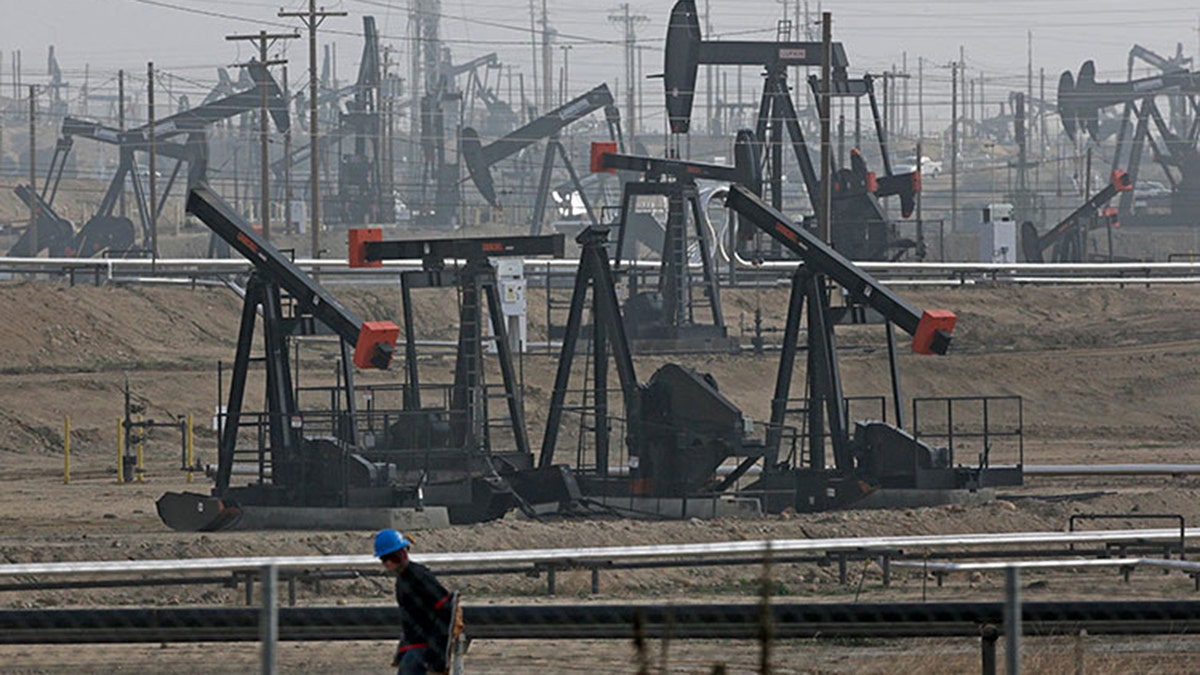Fox News Flash top headlines for June 5
Fox News Flash top headlines are here. Check out what's clicking on Foxnews.com.
Proximity to active oil and gas wells has been linked to adverse birth outcomes for mothers in rural areas, according to a recent study.
The study analyzed almost 3 million births to mothers living about six miles away from at least one oil or gas well in California from 2006 to 2015.
CORONAVIRUS IN THE US: STATE-BY-STATE BREAKDOWN
In previous studies, other researchers found several oil and gas development-related environmental exposures were linked to lower birth weight and gestational age, like air pollution and noise.

Pumpjacks operate at the Kern River Oil Field, Friday, Jan. 16, 2015, in Bakersfield, Calif. A new study shows proximity to active oil and gas wells is linked to adverse birth outcomes for mothers in rural areas. (AP Photo/Jae C. Hong)
The researchers at the University of California, Berkeley, concluded that women living less than a mile away from a well were 40 percent more likely to have low birth weight infants and 20 percent more likely to birth babies small for their gestational age, compared with women who lived farther away from wells, per U.S. News & World Report.
“Being born of low birth weight or small for gestational age can affect the development of newborns and increase their risk of health problems in early childhood and even into adulthood,” said Rachel Morello-Frosch, a professor of public health and of environmental science, policy and management at the University of California, Berkeley, and senior author of the paper, in a press release.
FLORIDA SEES SPIKE IN CORONAVIRUS CASES WHILE APPROACHING NEW REOPENING PHASE
Also, full-term babies in close proximity to wells were, on average, 36 grams or 1.3 ounces smaller than infants farther away from wells, the article noted.
“When you see a shift of over 30 grams of birth weight among term infants, from an individual clinical perspective, it may not seem like a lot,” Morello-Frosch said. “But when you see that kind of large population shift in birth weight — that can have significant population level implications for infant and children’s health.”
CDC BOSS APOLOGIZES FOR 'INADEQUATE' RACE-BASED CORONAVIRUS DATA
The senior study author said the results can inform decision-making in regulatory enforcement and permitting activities related to the state’s oil and gas production.
The findings were published June 3 in Environmental Health Perspectives.

